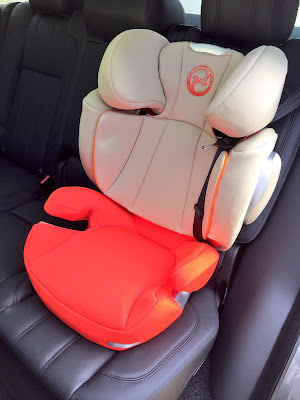BLOG: Getting a Good Deal at Auction
We've bought a few cars at auction now – including Project P38 most recently – which didn't end that well, but let's not dwell on that. It was really cheap, fun to do and an experience we'd highly recommend, if you go prepared and keep your wits about you and your heart under control.
So, when looking for a new car, for fun, family or keeps... why not try a car auction? Don’t be put off by the reputation that sometimes goes with an auction because they can offer first-time buyers a great chance to grab a bargain.
The key is to be well informed. The sales process is split into three key stages: finding the right vehicle, checking it over and using online tools to help dig out the important detail, and bidding in the auction hall. This simple breakdown allows for both an exciting and controlled buying experience.
There is a wide selection of auction sites out there but a good place to start is the British Car Auctions. They offer over a hundred weekly auctions countrywide so there’s plenty of opportunity. Once registered, you can search either by vehicle or by auction house location.
After you’ve found an auction house or the car you want it’s time to start doing some research. As Chris Beckett, MD and auctioneer at East Anglian Motor Auctions says “In the old days, buyers didn't even have a catalogue and cars arrived on the day of the sale. Now, buyers have a lot more, detailed information at their fingertips.”
It's important to spend time prior to the auction setting your targets and sticking to them. Learn everything you can about the vehicle you might want to bid on. If you put the ground-work in you will be well prepared to get the car you want at a price you can afford. Once auction day comes you should have two to three cars you would be happy to bid on. Start by picking up a listings catalogue so you can identify the cars you're interested in. Don’t forget to register with the auction house otherwise you won’t be able to bid!
Now its time to check out the vehicles and get a feel for them up close. Unlike buying a car from a dealership there’s no test driving at an auction. This means that a close inspection and asking the right questions is absolutely essential. It’s your job to delve into the car’s condition and history. Look at the car’s paperwork: ideally you want as long as possible on the MOT and tax, and check its service history, the more detailed the better. Then look at its V5 registration document. Know too that although you won’t need an actual tax disc any longer, you’ll still need to pay the tax.
When it comes to the physical condition check if the tyres all match and for wear and tear - especially the inner and outer edges which might indicate a tracking issue - then check if the doors open and close and align with the framework, if they don’t it could indicate the car has been in an accident. Is the paintwork consistent? Any areas that don’t match might mean a panel’s been replaced due to a collision. In general, ask yourself if the car looks as though it’s been cared for. What is the interior like? Try the pedals and gear stick. Any squeaks or stiffness? If something feels off, have a re-think, go and see the next car on your list. You can always come back later with something to compare it to. Try to be as meticulous as you can be.
The government provides an online service where you can find out more about the vehicle too, including when its tax and MOT expire and the date it was first registered. To get this, you’ll need to note down the registration number, the vehicle’s make, and the V5C document reference number.
A critical consideration is the insurance because if you can’t drive the car away unless you are insured. Get some quotes, from people who know their onions because it’s certainly sometimes a case of “Buyer Beware” at car auctions. You might get a shock when you make a call to insure a car you’ve just bought at auction and can't afford to cover it. You will still likely have to buy the car if you won the bid so we do advise customers to think ahead and check first.
There is a wide selection of auction sites out there but a good place to start is the British Car Auctions. They offer over a hundred weekly auctions countrywide so there’s plenty of opportunity. Once registered, you can search either by vehicle or by auction house location.
After you’ve found an auction house or the car you want it’s time to start doing some research. As Chris Beckett, MD and auctioneer at East Anglian Motor Auctions says “In the old days, buyers didn't even have a catalogue and cars arrived on the day of the sale. Now, buyers have a lot more, detailed information at their fingertips.”
It's important to spend time prior to the auction setting your targets and sticking to them. Learn everything you can about the vehicle you might want to bid on. If you put the ground-work in you will be well prepared to get the car you want at a price you can afford. Once auction day comes you should have two to three cars you would be happy to bid on. Start by picking up a listings catalogue so you can identify the cars you're interested in. Don’t forget to register with the auction house otherwise you won’t be able to bid!
Now its time to check out the vehicles and get a feel for them up close. Unlike buying a car from a dealership there’s no test driving at an auction. This means that a close inspection and asking the right questions is absolutely essential. It’s your job to delve into the car’s condition and history. Look at the car’s paperwork: ideally you want as long as possible on the MOT and tax, and check its service history, the more detailed the better. Then look at its V5 registration document. Know too that although you won’t need an actual tax disc any longer, you’ll still need to pay the tax.
When it comes to the physical condition check if the tyres all match and for wear and tear - especially the inner and outer edges which might indicate a tracking issue - then check if the doors open and close and align with the framework, if they don’t it could indicate the car has been in an accident. Is the paintwork consistent? Any areas that don’t match might mean a panel’s been replaced due to a collision. In general, ask yourself if the car looks as though it’s been cared for. What is the interior like? Try the pedals and gear stick. Any squeaks or stiffness? If something feels off, have a re-think, go and see the next car on your list. You can always come back later with something to compare it to. Try to be as meticulous as you can be.
The government provides an online service where you can find out more about the vehicle too, including when its tax and MOT expire and the date it was first registered. To get this, you’ll need to note down the registration number, the vehicle’s make, and the V5C document reference number.
A critical consideration is the insurance because if you can’t drive the car away unless you are insured. Get some quotes, from people who know their onions because it’s certainly sometimes a case of “Buyer Beware” at car auctions. You might get a shock when you make a call to insure a car you’ve just bought at auction and can't afford to cover it. You will still likely have to buy the car if you won the bid so we do advise customers to think ahead and check first.
Next comes excitement: the bidding, the hammer. Everything you’ve done up to now comes down to this moment. Here goes...
First listen to what the auctioneer says about any lots you’re into. They may well divulge crucial information that the catalogue or paperwork didn’t list or that you couldn’t find out in time. It’s important to remember there are different styles and temperaments when it comes to bidding. You might like to get a bid in early, but it might be better to wait, gauging the level of interest and coming in confidently not too short of your budget, as bidders fall away. Stand in a visible position so the auctioneer can see you. Bid clearly with a positive hand but remember: stick to your budget. It can be easy to get carried away once the bidding hots up.
If you strike gold and win the bid, go straight to the desk to pay your deposit (in cash, usually at least £200, so have that ready), then go to the payment booths to pay up in full by BACS or banker’s draft and pick up the keys and paperwork. The auction staff will usually help you sort your V5 changeover here. Last thing to do is to make sure the car is 100% road legal. This includes insurance, a valid MOT, V5 stub, and road tax. When everything’s in order, it’s time to drive your new – maybe even your first – car home. Happy auctioning folks!
First listen to what the auctioneer says about any lots you’re into. They may well divulge crucial information that the catalogue or paperwork didn’t list or that you couldn’t find out in time. It’s important to remember there are different styles and temperaments when it comes to bidding. You might like to get a bid in early, but it might be better to wait, gauging the level of interest and coming in confidently not too short of your budget, as bidders fall away. Stand in a visible position so the auctioneer can see you. Bid clearly with a positive hand but remember: stick to your budget. It can be easy to get carried away once the bidding hots up.
If you strike gold and win the bid, go straight to the desk to pay your deposit (in cash, usually at least £200, so have that ready), then go to the payment booths to pay up in full by BACS or banker’s draft and pick up the keys and paperwork. The auction staff will usually help you sort your V5 changeover here. Last thing to do is to make sure the car is 100% road legal. This includes insurance, a valid MOT, V5 stub, and road tax. When everything’s in order, it’s time to drive your new – maybe even your first – car home. Happy auctioning folks!



Comments
Post a Comment